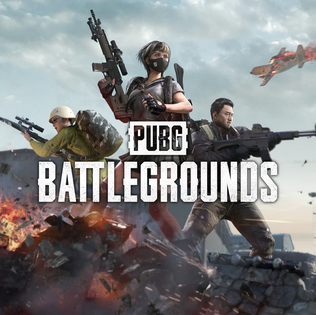Video Games amazes me especially the ignored Positive impact of gaming. I am also slightly in awe of them. I am in awe of their power in terms of imagination, technology and concept.
In this article, we will explore the positive impact of gaming in detail and how it can improve your life.
My name is Lalit Adhikari and we are at LTY. Let’s begin!
Table of Contents
Introduction
Gaming has often been associated with negative impacts such as addiction, violence and isolation. However, gaming has also been found to have several positive impacts on players too, including improved cognitive function, stress relief and socialization.
Now, the gaming industry is one of the fastest growing of all modern media. From about $10 billion in 1990 to about $150 billion globally today and it shows no signs of slowing down.
In the upcoming four years’ time, it will worth over $200 billion. The thing that really amazes me is that today people spend about above 10 billion real dollars per year buying virtual items that only exist inside video games.

Games like PUBG alone had more than 12 million players playing in India on a regular basis. This may all sound really quite alarming to some people, an index of something worrying or wrong in society.
But there is always a different side of the coin. To think positively, in that aspect, is thinking in terms of rewards. And specifically, in terms of intense emotional rewards that playing games offers to people, both individually and collectively.
Positive impact of Gaming
Here are some positive impacts of gaming on players.
- Improved Cognitive Function
Playing video games has been found to improve cognitive function, including attention, spatial awareness and decision-making skills. Video games require players to make quick decisions, solve puzzles and use critical thinking skills, all of which can enhance cognitive function. In fact, a study published in the journal Nature found that playing video games can increase the size of the brain’s gray matter which is responsible for processing information.
- Stress Relief
Gaming can provide an escape from the stresses of daily life, providing a relaxing and enjoyable experience. Playing video games has been found to decrease cortisol levels which is the hormone responsible for stress. A study conducted by researchers at the University of California found that playing casual video games can help reduce anxiety and depression.
- Socialization
Contrary to popular belief, gaming can actually enhance socialization skills. Online multiplayer games provide players with the opportunity to interact with others and form relationships. In fact, a study published in the Journal of Personality and Social Psychology found that playing cooperative video games can improve pro-social behavior and empathy.
- Physical Health
While gaming is often associated with a sedentary lifestyle, certain games can actually improve physical health. Exergaming, which combines exercise with gaming, has been found to provide a fun and effective way to improve cardiovascular health and fitness levels. Games such as Wii Fit and Dance Dance Revolution require players to move their bodies, providing a fun and engaging way to exercise.
- Education
Gaming can also be a valuable tool for education. Educational games can help children and adults learn new skills, including language, math and problem-solving. In fact, a study published in the Journal of Educational Psychology found that educational video games can improve learning outcomes for students.
Mental Processes
We can observe two different processes are occurring in someone’s head when they are engaged in playing those games. These are:
- ‘Wanting Processes’, this is a bit like ambition and drive.
- ‘Liking Processes’, it involves emotions like fun, affection and delight.
Imagine an enormous flying beast with an orc on the back. Here, I am describing you a scene from the game ‘World of Warcraft’ with more than 20 million players globally.
And this kind of world where you can ride vast flying beast shows why games are so good at doing both the ‘Wanting’ and the ‘Liking’ processes at the same time. In those games, you get great powers.
Your ambition is satisfied and it’s beautiful. It’s a very great pleasure to fly around. And so these combine to form a very intense emotional engagement.
We evolved to be satisfied by the world in particular ways. Over the ten, hundreds and thousands of years, we evolved to find certain things stimulating.
And as intelligent and civilized beings, we get enormously stimulated by problem-solving and learning techniques. But now we can reverse engineer that and built worlds that expressly tick our evolutionary boxes.
Lessons from Gaming World
From my years of experiences as a gamer, I came up with three aspects that show how you can take these lessons from games and use them outside the gaming world:
Learning to achieve multiple long and short terms goals
Suppose, you gave someone lists of different tasks like solving ten questions, turning up 20 classes on time, collaborating with other people, working five times more and hitting a particular target.
The person will break these tasks into calibrated slices that they can choose and do in parallel to keep them engaged.
Learning to reward efforts
In an average game, every time you do something, you get credit even if you are trying. You get a reward for every single bit of effort. It’s all feeds in as minute reinforcement.
An element of uncertainty
A game is like an individual goldmine because of these known rewards excites people but what really gets them going is the uncertain reward, the reward pitched at the right level of uncertainty where players didn’t quite know whether they are going to get it or not. This lights the brain up.
In real life, with this, you can transform the levels of people’s engagement by tapping into this very powerful evolutionary mechanism. When we don’t quite predict something perfectly, we get really excited about it. We just want to go back and find out more.
The neurotransmitter associated with learning is called dopamine. It is associated with reward-seeking behavior. Researchers at the University of Bristol are doing studies where they are building mathematical models to measure dopamine levels of the brain.
And that means we can predict learning and enhanced engagement, these windows of time in which the learning is taking place at an advanced level. Another interesting thing happens often with the game players is confidence.
These games and their reward structures make people braver and more willing to take risks and difficulties. So, if we look at these things and learn from them and see how to turn them outwards, then I really think we have something quite revolutionary on our hands.
Frequently Asked Questions (FAQs)
Here are some FAQs:
Q1. Is gaming addictive?
A1. While gaming can be addictive, it is not inherently addictive. Addiction can occur when gaming becomes a compulsive behavior that interferes with daily life.
Q2. Can gaming improve cognitive function?
A2. Yes, gaming has been found to improve cognitive function, including attention, spatial awareness, and decision-making skills.
Q3. Is gaming a good way to relieve stress?
A3. Yes, gaming can provide an escape from the stresses of daily life, providing a relaxing and enjoyable experience. Playing video games has been found to decrease cortisol levels, which is the hormone responsible for stress.
Q4. Can gaming improve physical health?
A4. While gaming is often associated with a sedentary lifestyle, certain games can actually improve physical health. Exergaming, which combines exercise with gaming, has been found to provide a fun and effective way to improve cardiovascular health and fitness levels.
Q5. Can gaming be educational?
A5. Yes, gaming can be a valuable tool for education. Educational games can help children and adults learn new skills, including language, math, and problem-solving.
Conclusion
In conclusion, gaming can have a positive impact on players, improving cognitive function, providing stress relief, enhancing socialization skills, improving physical health and serving as a valuable tool for education.
While gaming can have negative impacts, it is important to recognize the positive impact that gaming can have on players. By embracing the positive aspects of gaming, players can improve their lives.









Hi there, I enjoy reading all of your article post. I like to write a little comment to support you. Thank you.